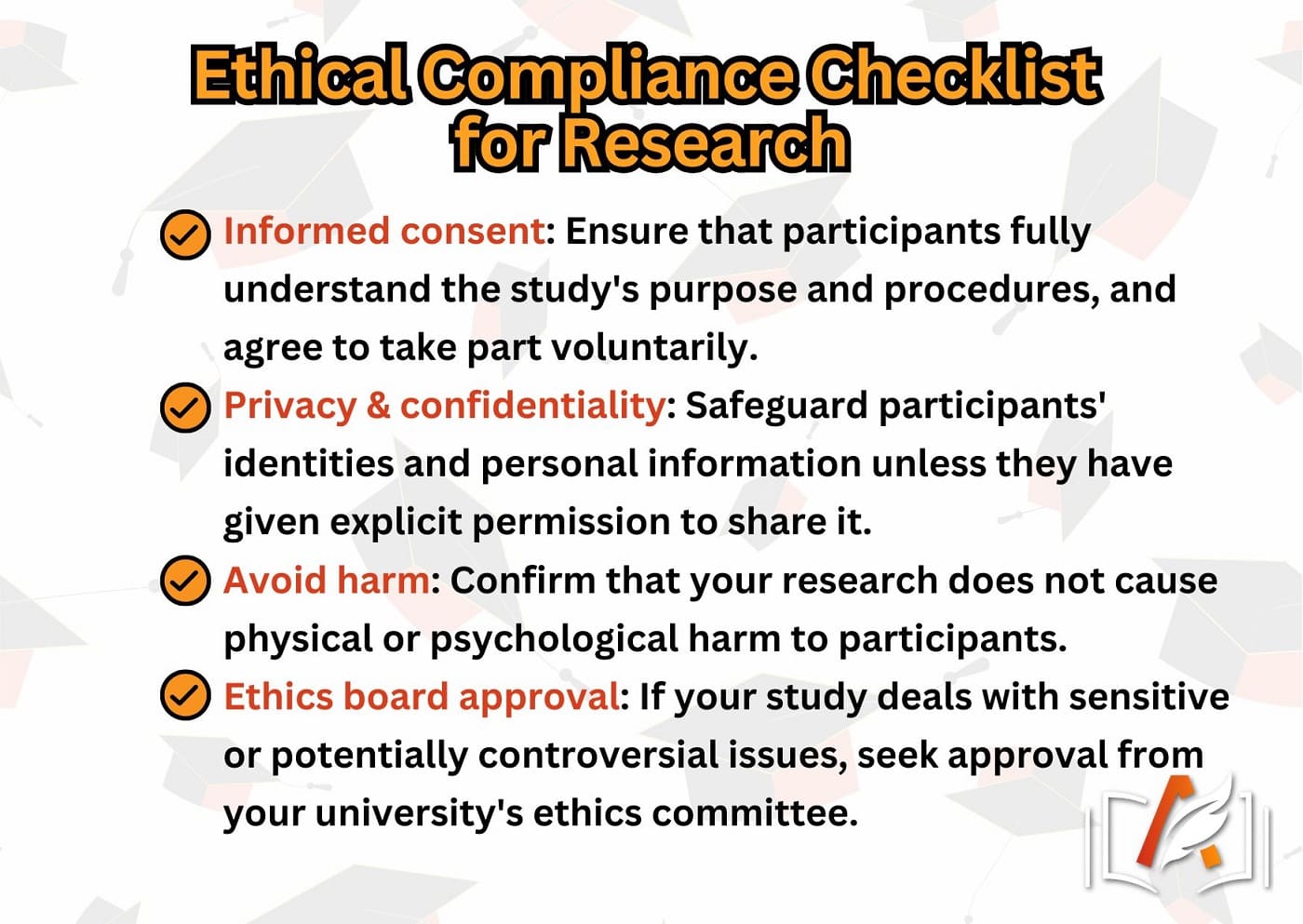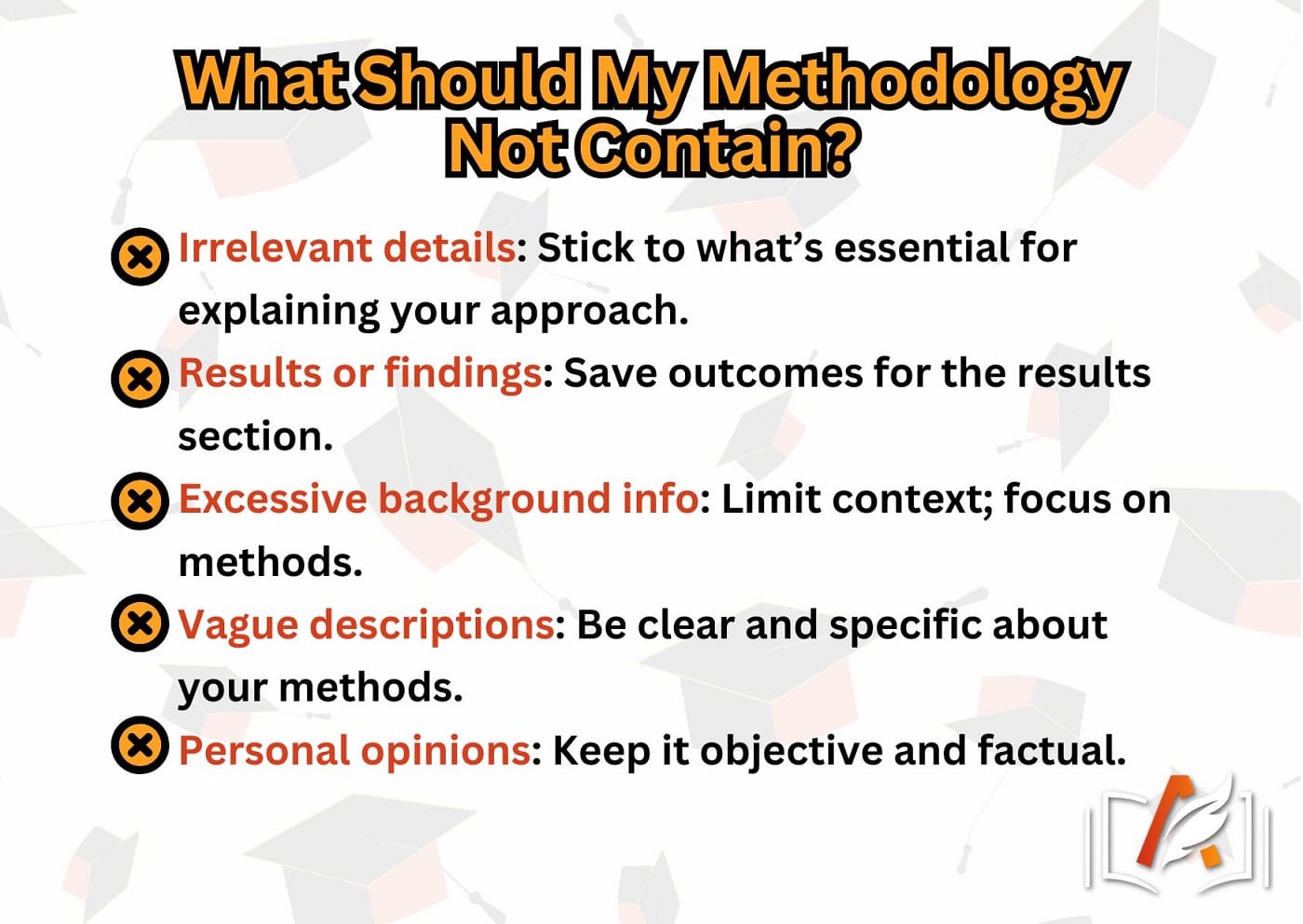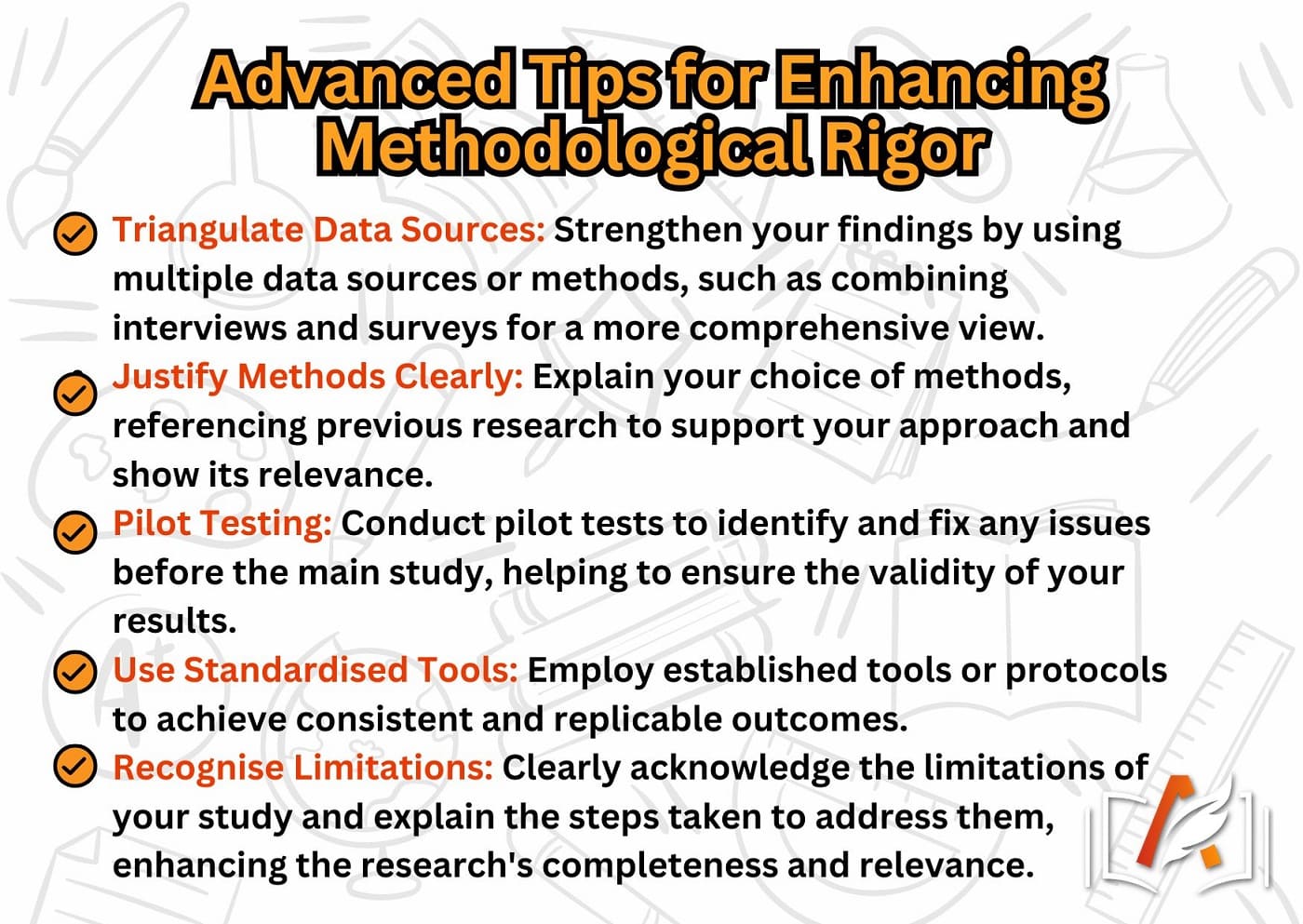 Ruby Butz
Ruby Butz

Writing a dissertation isn’t an easy endeavour, and methodology is one of the most critical aspects. The methods part specifies how research is conducted and directly connects the research question to the study results. It’s a crucial factor that establishes credibility and enables others to reproduce your findings. In this article, you’ll find valuable tips on how to write a methodology for a dissertation.
What is a Methodology?
A methodology is a set of instructions for your study presented after your dissertation introduction. It outlines what tools and procedures you used to obtain data, providing a clear research roadmap. The methodology helps by linking your research questions to the findings, indicating how exactly you reached your conclusions. A well-developed methodology also gives your dissertation credence. It lets your readers get an insight into how you achieved your findings and, if required, replicate your experiment. Moreover, your dissertation methods section must coordinate with your literature review and research questions, providing a structured framework supporting your claim.
Crafting Your Methodological Approach
If you wonder how to write methodology for dissertation papers, consider that you must take an in-depth approach to your study. It should be specific to your research questions but stay on the cutting edge of research practices.
Formulating Research Questions
When considering what to include in methodology, you must first articulate your research questions. These will determine the course of your study and the methods you’ll need to employ. Ensure that your questions are definite, narrow, and related to the goal of your dissertation. For instance, a quantitative method may be needed if your research attempts to study patterns or trends. Conversely, a qualitative approach might be better if you investigate human behaviour or opinions. The more specific your research question is, the better you can decide which approach works best for your project.
Many education recipients struggle with how to write a methods section when working on their dissertation. And that’s where the expert StateOfWriting essay writing service can provide high-quality assistance. By delegating the methodology part to professional authors, you can learn from experts and succeed academically.
Choosing the Right Method for Your Dissertation
When you’ve decided on your research questions, the next thing to do is choose how you will collect your data. There are three most popular methods for those looking for types of dissertation methodology:
- Qualitative methods: These delve into subjective experiences and insights, typically applied to interviews, focus groups, or content analysis.
- Quantitative methods: This approach focuses on data and statistics, typically applied in surveys, experiments, or data collection to study measurable patterns.
- Mixed methods: As the name implies, this incorporates qualitative and quantitative methodologies to present a broader view of the study object.
Your choice should be determined by the type of data needed to answer your research questions. Quantitative methods will likely be necessary if your study relies on measurable data, while qualitative methods would be more suitable for a more detailed exploration of personal experiences or opinions.
Justifying Your Methodology Choice
When discussing how to write a dissertation methodology and describing your approach, you should clearly articulate why you adopted it. This explanation connects your method choice to your study's research goals and demonstrates how your methodology fits within the field of existing studies.
For example, if you did qualitative research, explain why you needed it to look at complex human behaviour that cannot be captured by numbers alone. If your study requires quantitative data, show how statistical analysis will provide the objective measurement to determine the answers to your research questions.
Your arguments need to draw on the literature as well. This confirms the choice of dissertation research methodology and positions your study within the academic realm. It reflects that you are applying research best practices and carefully considering the right tools to do the work.
Crafting Your Methodology: A Detailed Roadmap
The dissertation methodology section is critical since it connects the research questions and methods used to address them. Here is an overview of writing a successful methodology to give your research more credibility.
Ethical Considerations
Ethical considerations come into play when doing human subjects research. Each step of your study should meet ethical requirements to safeguard participants and preserve the integrity of your research. Consider these points when writing a dissertation methodology:
- Informed consent: Make sure participants are well informed of what they are doing in the study and consent voluntarily.
- Privacy & confidentiality: Protect the participant’s identity unless specified otherwise.
- Not harm: Ensure your studies aren’t physically or psychologically harmful to the participants to avoid a fail dissertation.
- Approval from ethics boards: If your research involves sensitive or controversial topics, request approval from your university ethics committee.

Integrating Methodology with Literature Review
The methodology approach must comply with the literature review by demonstrating that previous studies support used techniques, filling in information gaps identified in earlier research, and advancing on or changing previous practices. This connection allows for a smooth progression whereby the literature provides the ground for your methodological decisions. If this dissertation writing aspect seems tricky, consider using literature review writing help. It can strengthen your research credibility and add value to the existing body of knowledge.

Advanced Tips for Enhancing Methodological Rigor
To give your research authority, improve your methodological rigour. Here are some key recommendations:
- Triangulate Data Sources: Validate findings through multiple data sources or methods, including integrating interviews and surveys.
- Justify Methods Clearly: In the methodology chapter, state why you chose particular approaches, mentioning prior research to support your strategy.
- Pilot Testing: Performing pilot tests will resolve issues before the main study and ensure validity
- Use Standardised Tools: Utilise established tools or protocols for consistent and replicable outcomes.
- Recognise Limitations: Communicate methodology limitations clearly and explain how you overcome them to make the research more complete and relevant.

By following these steps, you can create a robust and valid approach that enhances the quality and impact of your studies. You can hire dissertation experts to provide a perfectly crafted dissertation methodology example tailored to your needs. Their guidance will help you understand how to organise your methodology, match it to your research goals, and adhere to academic standards.
Rhetorical Strategies for Methodology Presentation
The way you present your methodology is just as crucial as how you develop it. Using these strategies, you ensure persuasiveness and clarity of your presentation:
- Clear dissertation methodology structure: Organise this section logically, starting with general information and moving to details.
- Concise language: Don’t use jargon or technical terms to avoid confusing the reader.
- Consistency: Align your methodological choices with your research questions and objectives to avoid contradictions. Understanding the difference between APA and Harvard is crucial, as using the correct style consistently throughout the methodology will help maintain a scholarly tone in your work.
- Signposting: Use phrases like "this method was chosen because…" to show the reader how you made decisions.
An effective presentation makes your methodology easier to understand and boosts the reader’s confidence in your research approach.
FAQ
1. How long should a methodology be?
When learning how to write the methods section of the dissertation, it's essential to consider the scope and depth needed to explain your approach adequately. The length of the methodology typically ranges from 10-15% of the total dissertation word count.
2. Does the methodology need a citation?
You must cite sources to support your selected methods and explain your approach.
3. What is the format of the methodology?
A methodology section usually consists of an introduction, detailed descriptions and justification of the methods, and ethical considerations.

Meet Ruby Butz, the accomplished author at the StateOfWriting educational blog. With a Master’s in English Literature, notable articles, and extensive teaching experience, she has helped thousands of students develop strong writing skills.